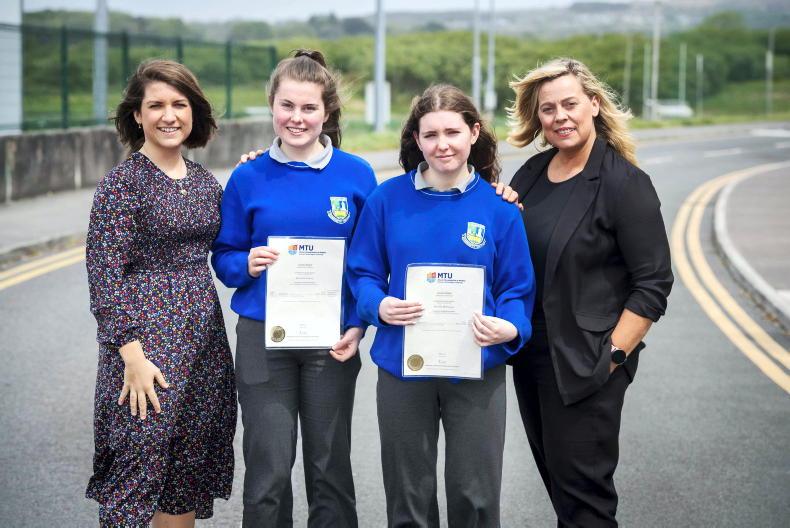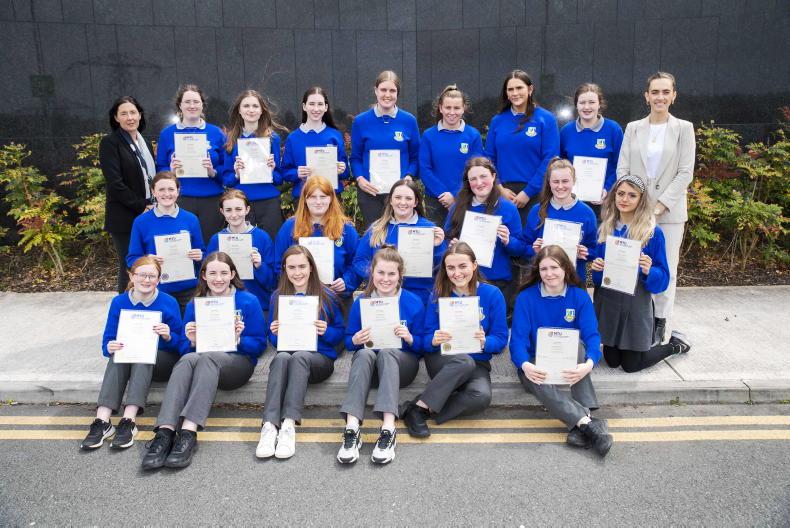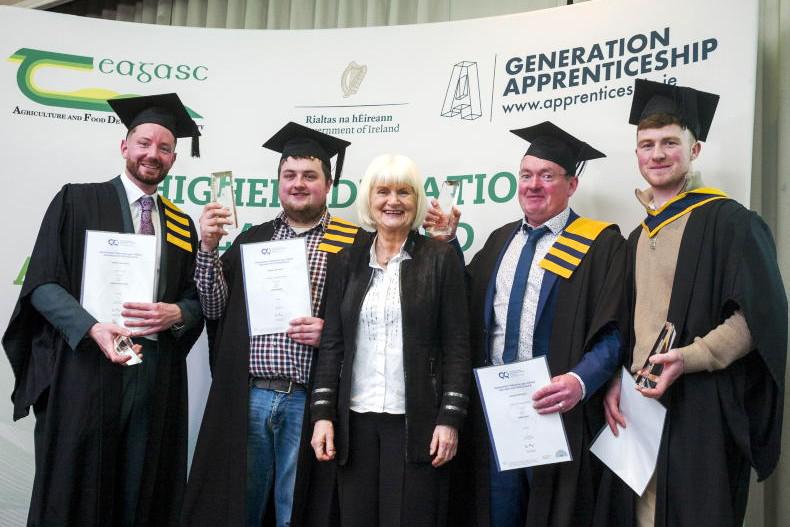Digital wealth doesn’t mean whether someone is able to afford an iPad - it is the idea that every person, regardless of their socio-economic situation, deserves access to technology as well as the correct training to be able to get the most out of the technologies available to us.
Microsoft Ireland’s Dream Space exists to provide immersive and research-based STEM (science, technology, engineering and mathematics) experiences for students, but not in ways you might expect.
As opposed to simply teaching the basics of coding, they engage students through an inclusive and multi-disciplinary approach to STEM, which includes the development of socio-emotional skills (empathy, creativity, ethics and collaboration).
This means all kinds of students – whether they are science, music or English-oriented – can find a way to incorporate STEM into a future career. This is important, because recently the World Economic Forum estimated that by 2030 90% of all jobs will require digital skills.
Collaboration
Earlier this year, Dream Space collaborated with Maynooth University to address digital inequality in Irish schools and also increase the number of girls engaging in STEM subjects.
This collaboration focused on two unique projects: the Digital Wealth project and the STEM Passport for Inclusion project. They focus on Irish schools where gaps in digital wealth may be present; particularly those within underserved areas (for example, within Deis schools).
we were changing mindsets and there was a jump in interest in STEM, particularly with girls
Under the Digital Wealth project, the Dream Space team train and upskill teachers in digital skills like coding and computation, and have to date brought these subjects into 45 schools across the country.
The STEM Passport for Inclusion project supports female students in 4th to 6th year in disadvantaged communities to consider STEM careers.
Digital Wealth Project
ICL spoke with Dr Holly Foley, who is the project manager for the STEM Passport for Inclusion programme and works within the Assisting Living and Learning (ALL) Institute Maynooth University, and Amanda Jolliffe, who leads Microsoft Ireland’s Dream Space.

Microsoft Dream Space Ireland has collaborated with Maynooth University to address digital poverty in Irish schools.
Amanda says the collaboration with Maynooth University came about after Dream Space worked with Dr Katriona O’Sullivan (who heads the ALL Institute Maynooth University) to gain a better understanding of the impacts their programmes were having on schools.
“We engaged with Katriona and she did some initial research on our impact through mixed method studies and surveys,” she explains. “After our first year, we got the feedback on whether we were having an impact, and we were – we were changing mindsets and there was a jump in interest in STEM, particularly with girls.”
Our students were actually fighting for spaces; I couldn’t bring them all on
From the feedback, they also discovered that while teachers were more confident in beginning to teach STEM to their students through Dream Space’s programmes, many didn’t know how long they would be able to do it for, or in what capacity.
This led to a focus on training teachers in STEM which in turn led to the development of the Digital Wealth project.

Microsoft Dream Space Ireland has collaborated with Maynooth University to address digital poverty in Irish schools.
“One of the greatest strengths of the Digital Wealth programme is that it is holistic,” Holly says. “We wanted it to meet the needs of the school and the best way we could achieve that was through a needs analysis [per school].
By doing this, what we were offering to that school is something they identified themselves that they needed.”
STEM Passport for Inclusion
The STEM Passport for Inclusion project took place within 15 schools in Munster and another 15 in Dublin, Kildare, Offaly and Westmeath. While these were part of the pilot programme, it is hoped that this project will extend throughout the country in coming years.
“The STEM Passport for Inclusion was dreamt up on the idea that it would target girls in underserved communities,” Holly says.
“The girls complete three lab days and are linked in with a mentor. If they complete the three lab days and the assignment after each one, they get 50 bonus points for their CAO that they can use to apply to MTU (Munster Technological University).
It’s an NFQ level six module, so they have a pathway to university and it also acts as a connection for industry and internship opportunities.”
This year’s pilot programme ended with a STEM Passport Graduation (the Leinster-region schools’ ceremony was at Maynooth University while the Munster Schools’ was at MTU), where students received their certification.
Castleisland Community College
Castleisland Community College, located outside of Tralee in Co Kerry, took part in the STEM Passport for Inclusion programme. Science and maths teacher Cáit McEllistrem helped facilitate the programme at the school.
“Our students were actually fighting for spaces; I couldn’t bring them all on,” she says. “I brought on 26 girls from transition year, 5th and 6th year. We’re not a Deis school so we were grateful for the opportunity. This opens their eyes to what is available to them.
“[Someone was recently speaking with the Transition Year girls and] asked, ‘What are we doing next year?’ I heard one of the girls say, ‘Oh I’ve totally changed my mind; I’m definitely going into engineering.’ I looked at her and she was smiling.
She said she felt empowered by the course. A few of our girls have now changed their CAO to engineering. They didn’t understand that this is what STEM was, they thought it was all done behind a computer and coding.
“The leaders in the Dream Space team were great communicators, they were active listeners only dying to hear from the kids). They were knowledgeable, engaging, and enthusiastic.
They have high expectations of the kids – that was important – they were never going to strive to reach that potential otherwise. It’s all about immersive and collaborative work and it was great to see – that’s the pinnacle of teaching and learning; that rapport between teacher and students.
“The first day they had a lively debate on computational thinking and they did problem solving with data. They talked about the universal language of python (a general-purpose programming language) and they didn’t realise it was used in nearly every profession.
They learned about different types of coding and how to build apps and came up with their own prototype. I saw them working as a team and collaborating.”
If teachers want to learn more about these programmes, visit www.maynoothuniversity.ie
For more on how to engage with Microsoft’s Dream Space experience, visit www.dreamspace.ie.
See more here.
Digital wealth doesn’t mean whether someone is able to afford an iPad - it is the idea that every person, regardless of their socio-economic situation, deserves access to technology as well as the correct training to be able to get the most out of the technologies available to us.
Microsoft Ireland’s Dream Space exists to provide immersive and research-based STEM (science, technology, engineering and mathematics) experiences for students, but not in ways you might expect.
As opposed to simply teaching the basics of coding, they engage students through an inclusive and multi-disciplinary approach to STEM, which includes the development of socio-emotional skills (empathy, creativity, ethics and collaboration).
This means all kinds of students – whether they are science, music or English-oriented – can find a way to incorporate STEM into a future career. This is important, because recently the World Economic Forum estimated that by 2030 90% of all jobs will require digital skills.
Collaboration
Earlier this year, Dream Space collaborated with Maynooth University to address digital inequality in Irish schools and also increase the number of girls engaging in STEM subjects.
This collaboration focused on two unique projects: the Digital Wealth project and the STEM Passport for Inclusion project. They focus on Irish schools where gaps in digital wealth may be present; particularly those within underserved areas (for example, within Deis schools).
we were changing mindsets and there was a jump in interest in STEM, particularly with girls
Under the Digital Wealth project, the Dream Space team train and upskill teachers in digital skills like coding and computation, and have to date brought these subjects into 45 schools across the country.
The STEM Passport for Inclusion project supports female students in 4th to 6th year in disadvantaged communities to consider STEM careers.
Digital Wealth Project
ICL spoke with Dr Holly Foley, who is the project manager for the STEM Passport for Inclusion programme and works within the Assisting Living and Learning (ALL) Institute Maynooth University, and Amanda Jolliffe, who leads Microsoft Ireland’s Dream Space.

Microsoft Dream Space Ireland has collaborated with Maynooth University to address digital poverty in Irish schools.
Amanda says the collaboration with Maynooth University came about after Dream Space worked with Dr Katriona O’Sullivan (who heads the ALL Institute Maynooth University) to gain a better understanding of the impacts their programmes were having on schools.
“We engaged with Katriona and she did some initial research on our impact through mixed method studies and surveys,” she explains. “After our first year, we got the feedback on whether we were having an impact, and we were – we were changing mindsets and there was a jump in interest in STEM, particularly with girls.”
Our students were actually fighting for spaces; I couldn’t bring them all on
From the feedback, they also discovered that while teachers were more confident in beginning to teach STEM to their students through Dream Space’s programmes, many didn’t know how long they would be able to do it for, or in what capacity.
This led to a focus on training teachers in STEM which in turn led to the development of the Digital Wealth project.

Microsoft Dream Space Ireland has collaborated with Maynooth University to address digital poverty in Irish schools.
“One of the greatest strengths of the Digital Wealth programme is that it is holistic,” Holly says. “We wanted it to meet the needs of the school and the best way we could achieve that was through a needs analysis [per school].
By doing this, what we were offering to that school is something they identified themselves that they needed.”
STEM Passport for Inclusion
The STEM Passport for Inclusion project took place within 15 schools in Munster and another 15 in Dublin, Kildare, Offaly and Westmeath. While these were part of the pilot programme, it is hoped that this project will extend throughout the country in coming years.
“The STEM Passport for Inclusion was dreamt up on the idea that it would target girls in underserved communities,” Holly says.
“The girls complete three lab days and are linked in with a mentor. If they complete the three lab days and the assignment after each one, they get 50 bonus points for their CAO that they can use to apply to MTU (Munster Technological University).
It’s an NFQ level six module, so they have a pathway to university and it also acts as a connection for industry and internship opportunities.”
This year’s pilot programme ended with a STEM Passport Graduation (the Leinster-region schools’ ceremony was at Maynooth University while the Munster Schools’ was at MTU), where students received their certification.
Castleisland Community College
Castleisland Community College, located outside of Tralee in Co Kerry, took part in the STEM Passport for Inclusion programme. Science and maths teacher Cáit McEllistrem helped facilitate the programme at the school.
“Our students were actually fighting for spaces; I couldn’t bring them all on,” she says. “I brought on 26 girls from transition year, 5th and 6th year. We’re not a Deis school so we were grateful for the opportunity. This opens their eyes to what is available to them.
“[Someone was recently speaking with the Transition Year girls and] asked, ‘What are we doing next year?’ I heard one of the girls say, ‘Oh I’ve totally changed my mind; I’m definitely going into engineering.’ I looked at her and she was smiling.
She said she felt empowered by the course. A few of our girls have now changed their CAO to engineering. They didn’t understand that this is what STEM was, they thought it was all done behind a computer and coding.
“The leaders in the Dream Space team were great communicators, they were active listeners only dying to hear from the kids). They were knowledgeable, engaging, and enthusiastic.
They have high expectations of the kids – that was important – they were never going to strive to reach that potential otherwise. It’s all about immersive and collaborative work and it was great to see – that’s the pinnacle of teaching and learning; that rapport between teacher and students.
“The first day they had a lively debate on computational thinking and they did problem solving with data. They talked about the universal language of python (a general-purpose programming language) and they didn’t realise it was used in nearly every profession.
They learned about different types of coding and how to build apps and came up with their own prototype. I saw them working as a team and collaborating.”
If teachers want to learn more about these programmes, visit www.maynoothuniversity.ie
For more on how to engage with Microsoft’s Dream Space experience, visit www.dreamspace.ie.
See more here.











SHARING OPTIONS